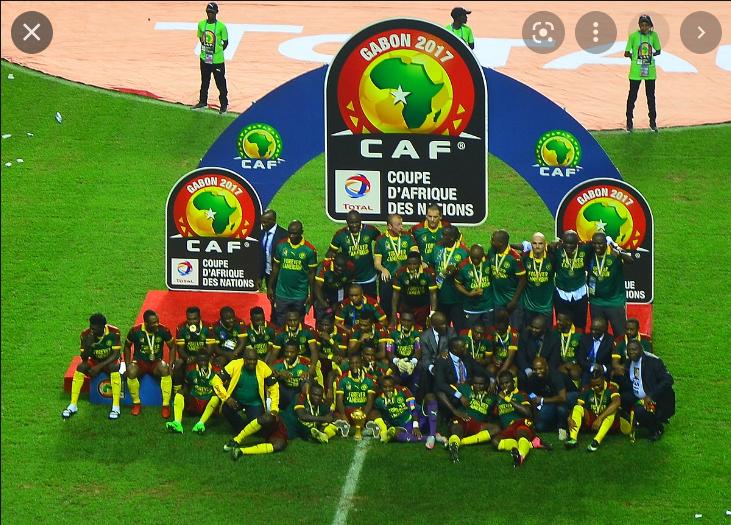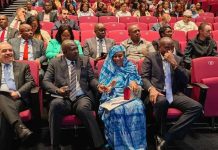Africa-Press – Gambia. Hi Quartz Africa readers!
We’re proud to announce that in less than two weeks, we’ll be launching our first Africa-specific subscription product, which we’re thinking of as a front-row seat to innovation on the continent.
Quartz Africa membership will include unlimited access to Quartz Africa’s journalism, plus an exclusive weekly email that goes deep on the startups, innovators, and sectors driving Africa’s technological boom. Each week, we’ll also share a case study of a company making an impact.
As readers of Quartz Africa Weekly—which will remain free!—you’ll receive free access to our subscription newsletter for the first four weeks. If you want to let others in on that gift, make sure they’re subscribed to this email.
Okay, let’s get started.
The end is nigh
Later today, Cameroon will host a colorful closing ceremony for the final match of this year’s Africa Cup of Nations soccer tournament—but not for its own national team. The Indomitable Lions came close to the final, but their hopes were dashed after they missed three penalties in the semifinal against Egypt. That means the Pharaohs will challenge Senegal’s Teranga Lions for this year’s $5 million prize and a place in the World Cup.
Whoever wins, it will bring an end to festivities that started on Jan. 9 at the newly built Olembe Stadium in Yaoundé. There have been high moments in the competition, especially for countries like Comoros and the Gambia. But there have also been lows, including a Jan. 24 pre-game stampede that killed eight people and left 40 others wounded. The fatal event reopened questions about Cameroon’s initial preparedness to host the tournament.
Today’s final will be played at Olembe, with the Confederation of African Football (CAF) and Cameroon’s local organizing committee reportedly satisfied that enough measures have been taken to prevent a repeat tragedy. Cameroon’s players also asked their soccer administrators to donate some of their performance bonuses to the stampede’s victims.
Cameroon might get some consolation in the third-place game against Burkina Faso, which has had to put aside the distraction of a military coup at home. But whatever happens, the continent will miss coming together for a month-long party that, barring one devastating event, has truly been a thrill. —Alexander Onukwue, west Africa correspondent
STORIES THIS WEEK
Combating piracy to monetize music. Carlos Mureithi interviews Tosin Sorinola, director of artist and media relations for streaming service Boomplay, about Africa’s piracy problem, regulatory environment, and musical future.
Nigerian investment apps plot success. Robinhood shares might be in a slump, but similar apps in Africa—particularly in Nigeria—are making plans for a boom year after navigating regulatory troubles, Alexander Onukwue reports.
E-commerce in Morocco soars. Having had one of the continent’s longest and strictest lockdowns, Morocco saw an e-commerce boom in early 2020. Kingsley Kobo reports on why two years later, the sector continues to experience impressive growth.
Cocaine is blamed for an attempted coup. Events in Guinea-Bissau brought more attention to the vulnerability of democracy in west Africa. Alexander Onukwue reports on what makes this episode different than other coup attempts in the subregion.
An Afropop artist commands his lane. Last year, Nigerian stars Wizkid and CKay pushed Afrobeats to global success. Alexander Onukwue explores how a new album release by Adekunle Gold could help punch holes in the popular understanding of the genre as a monolith.
Netflix just got less chill. Zimbabwe and Nigeria are the latest African countries to lay out plans for the collection of taxes from e-commerce and digital companies such as Netflix, Google, YouTube, and Amazon.
CRYPTO ADOPTION IN AFRICA  Binance, the world’s largest cryptocurrency exchange by volume, recently restricted 281 Nigerian personal accounts, claiming the need to boost security and prevent fraud. But users, especially those shut out, responded with calls for a boycott. Carlos Mureithi reports on why Binance is cracking down in Nigeria, where even a series of bans haven’t stopped widespread crypto adoption.
DEALMAKER
Brimore, an Egyptian e-commerce company, raised $25 million in a round led by the International Finance Corporation (IFC), and Endure Capital, a US-based firm. Founded in 2017, Brimore enables shop owners to create mobile-app-based stores. The company says 74% of its 75,000 sellers are women who primarily live in Egypt’s rural communities.
Nestcoin, a startup creating media, gaming, and trading products on blockchain platforms, has raised $6.45 million from a host of investors including Serena Ventures, the investment company of Serena Williams. Nestcoin launched in November with a team of mainly Nigerians, but has a global focus for all its products.
Nigerian retail investment app Bamboo raised $15 million in a round led by US firms Tiger Global and Greycroft. Bamboo is one of a growing number of apps in Africa replicating Robinhood’s fractional trading model for retail stock investors. It launched in January 2020 and, after two years learning the market in Nigeria, plans to expand to Ghana later this year.
Does your company share the highly adaptable habits of the best companies for remote workers? Enter them for Quartz’s Best Companies for Remote Workers 2022 list.
For More News And Analysis About Gambia Follow Africa-Press






